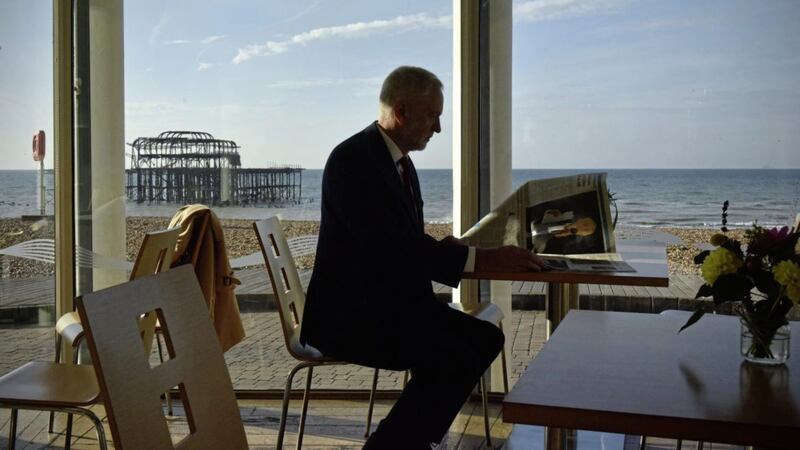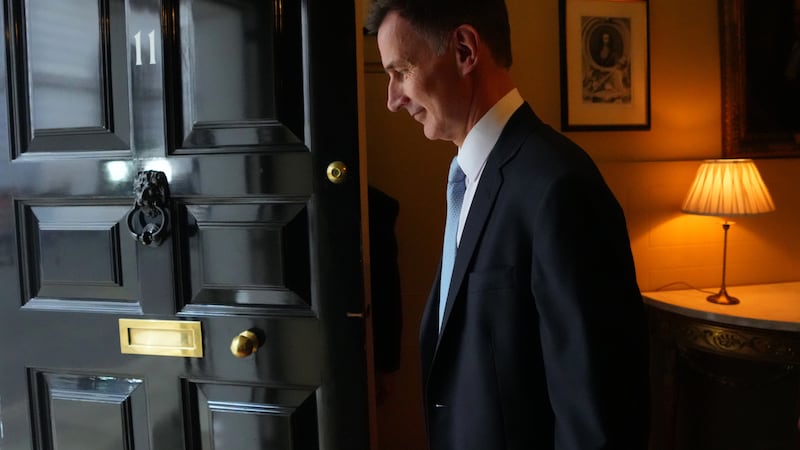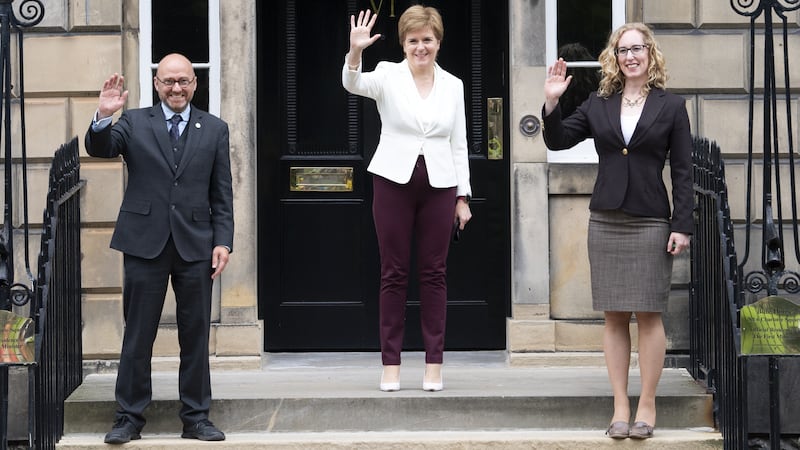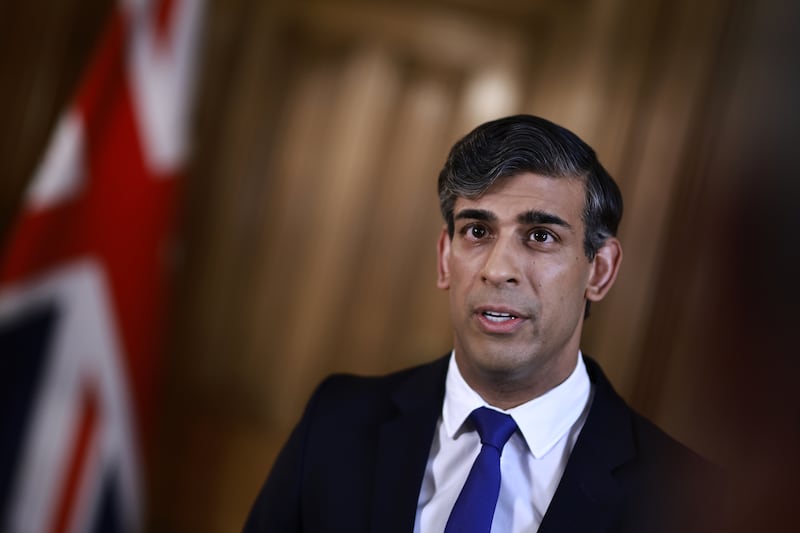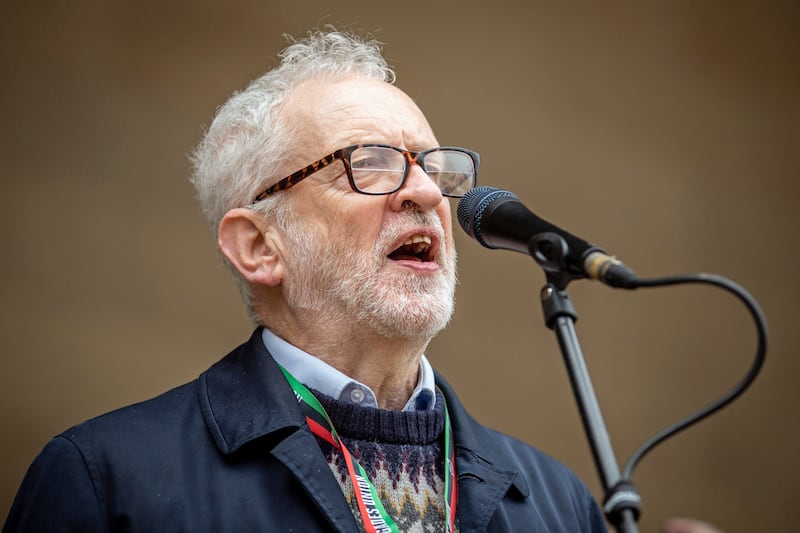Jeremy Corbyn is resisting pressure from Labour MPs to commit the party to keeping the UK in the EU single market after Brexit.
As activists gathered in Brighton for the start of Labour's annual conference, 30 senior figures have written an open letter calling for the party to do whatever it takes to keep Britain in the single market and the customs union.
But in a high-profile TV interview kicking off the week's events, Mr Corbyn said Labour needed to be careful not to give up powers which it will need in government to deploy state support for industry.
An upbeat Mr Corbyn, who goes into the conference in an unassailable position just a year after facing an attempt to oust him as leader, said the Conservative government was "running out of steam", while within Labour "the steam is rising, not falling, and the movement is stronger than ever".
He confirmed he had received unanimous support from Labour's ruling National Executive Committee to give greater power to party members, including by giving conference the final say on deciding policy.
In an interview with BBC1's Andrew Marr Show, the Labour leader repeatedly dodged the question of whether he would join picket lines on an illegal strike, but said he would "be with" workers demanding decent pay rises.
The 68-year-old veteran was reported by the Sunday Mirror to have said that he wanted to serve 10 years in Downing Street – something which could keep him in power until the age of 83.
However, he suggested in his TV interview that this was the period he thought Labour needed to push through its agenda.
"What I said was that we need at least two terms of a Labour government to start to address issues of poverty and injustice and inequality in Britain and to build the houses we need in this country," said Mr Corbyn.
Shadow Brexit secretary Sir Keir Starmer has previously said that under a Labour government Britain would remain in the single market and the customs union for a transitional period of two to four years after Brexit.
But signatories to a letter published in the Observer, including former shadow cabinet members Chuka Umunna and Heidi Alexander, as well as one of Mr Corbyn's closest allies in his early days as leader, Clive Lewis, said the party should go further to protect jobs and workers' rights.
The letter, which was also signed by the TSSA union's general secretary, Manuel Cortes, former Northern Ireland secretary Lord Hain and Liverpool mayor Joe Anderson, warned that leaving the single market would "hit the most vulnerable in our society hardest".
"At our conference this week, Labour should commit to staying in the single market and customs union – ruling out no options for how to achieve this – and to working with sister parties and others across Europe to improve workers' rights, boost trade union membership and put an end to the exploitation of workers, not freedom of movement," they said.
Speaking to Marr, Mr Corbyn said he wanted to ensure "tariff-free access to the European market".
But he added: "I would also say that we need to look very carefully at the terms of our trade relationship, because at the moment we are a part of the single market and that has within it restrictions on state aid and state spending and pressures on it, through the European Union, to privatise rail and other services.
"I think we need to be careful about the powers we need as a national government."
He suggested that EU rules could have prevented him as prime minister from intervening to prop up Britain's steel industry during its recent crisis, and would block a future Labour government from investing in industries.
Pressed on whether free movement should continue from the EU after Brexit, Mr Corbyn said abuses of the system by rogue employers had to stop but there would still be "a lot" of movement.
"We have to recognise that in the future we are going to need people to work in Europe and people from Europe are going to need to work here," he said.
Mr Corbyn said a transitional period should last "as long as necessary" as he questioned Mrs May's suggestion it should be around two years.
Asked whether it could last as long as a decade he said "no, I don't think so" but added: "I think it's impossible for anyone to put an absolute figure on that."
Shadow chancellor John McDonnell said that Labour would retain the flexibility to extend any Brexit transition deal beyond the two years suggested by Theresa May in her speech in Florence on Friday.
"We think there is an element of flexibility beyond two years that might be necessary," he told ITV1's Peston on Sunday.
Asked if the transition could last as long as four years under Labour's plans, Mr McDonnell said: "I can't see it being that long, but we will see."
Mr McDonnell said it was "difficult to see" how the UK could stay in the single market so long as the EU insisted on maintaining its current rules on freedom of movement, which he said allowed employers to undercut wages and conditions by bringing in cheap foreign labour.
But he suggested that it might be possible to persuade other EU countries to accept changes to freedom of movement that would enable membership of a reformed single market.
"In that way, we think we can achieve all the benefits of the single market, overcome some of the disbenefits that were perceived in the referendum and in that way achieve a close and collaborative relationship with Europe in all our interests," he said.
"It wouldn't be the single market as we now know it, based on the four freedoms (of movement of goods, services, capital and labour). Those four freedoms would be adjusted. We believe we can reform freedom of movement of people on the basis of protecting wages. That would be a changed single market."
He said Labour was aiming for "a relationship which is based on tariff-free access, the structures renegotiated but the objectives are the same".
Mr McDonnell said he did not believe the Conservative government was "capable of getting a decent deal", because they had not shown the necessary respect to EU partners.
Shadow Brexit secretary Sir Keir Starmer refused to be drawn on the specifics of the future permanent relationship with the EU Labour hoped to achieve but said it must retain "the benefits" of the single market and customs union.
"How we achieve that, in my view, is secondary to the fact that we do achieve it. We can go up hill and down dale about what that means for the single market and customs union, we can have any number of models," he told a conference fringe event.
"I am open to whether that's achieved by some sort of changed relationship with the single market or a bespoke trade deal, it doesn't matter. And I'm open to leaving on the table the UK being in a customs union with the EU so that we can retain the benefits."
At the Labour Movement for Europe fringe event, pro-EU MP Chuka Umunna acknowledged he had been a "pain in the arse" to Sir Keir but said "we need to go further still" and campaign to stay in the single market permanently.
Fellow backbencher Alison McGovern suggested Labour should keep open the option of reversing Brexit.
"I don't think we should take that off the table, people are perfectly entitled to vote one way in a referendum and then change their minds as part of a general election or referendum," she said.
Conservative chairman Sir Patrick McLoughlin said: "Jeremy Corbyn seems unable to give a straight answer to a simple question. Today he refused to commit to controlling migration from the EU and he refused to condemn illegal strikes.
"Jeremy Corbyn is once again showing he is unfit to govern. He would backtrack on Brexit and fail to take the balanced approach on the economy that this country needs - and it would be ordinary working people that pay the price."
Liberal Democrat leader Sir Vince Cable said: "Jeremy Corbyn has always wanted to leave the EU, leave the single market and leave the customs union. Now he is pulling out his old anti-EU arguments to defend Labour's endorsement of Brexit.
"The idealistic, pro-EU young people who have rallied behind Corbyn will be mortified to discover that he is working hand in glove with the Conservative Party to promote a 'hard' Brexit.
"The Labour Party must be clear on Brexit. This is the biggest issue of our time and the public need to know whether they are lining up with pro-Brexit Corbyn or fighting to stay in the single market and customs union."
